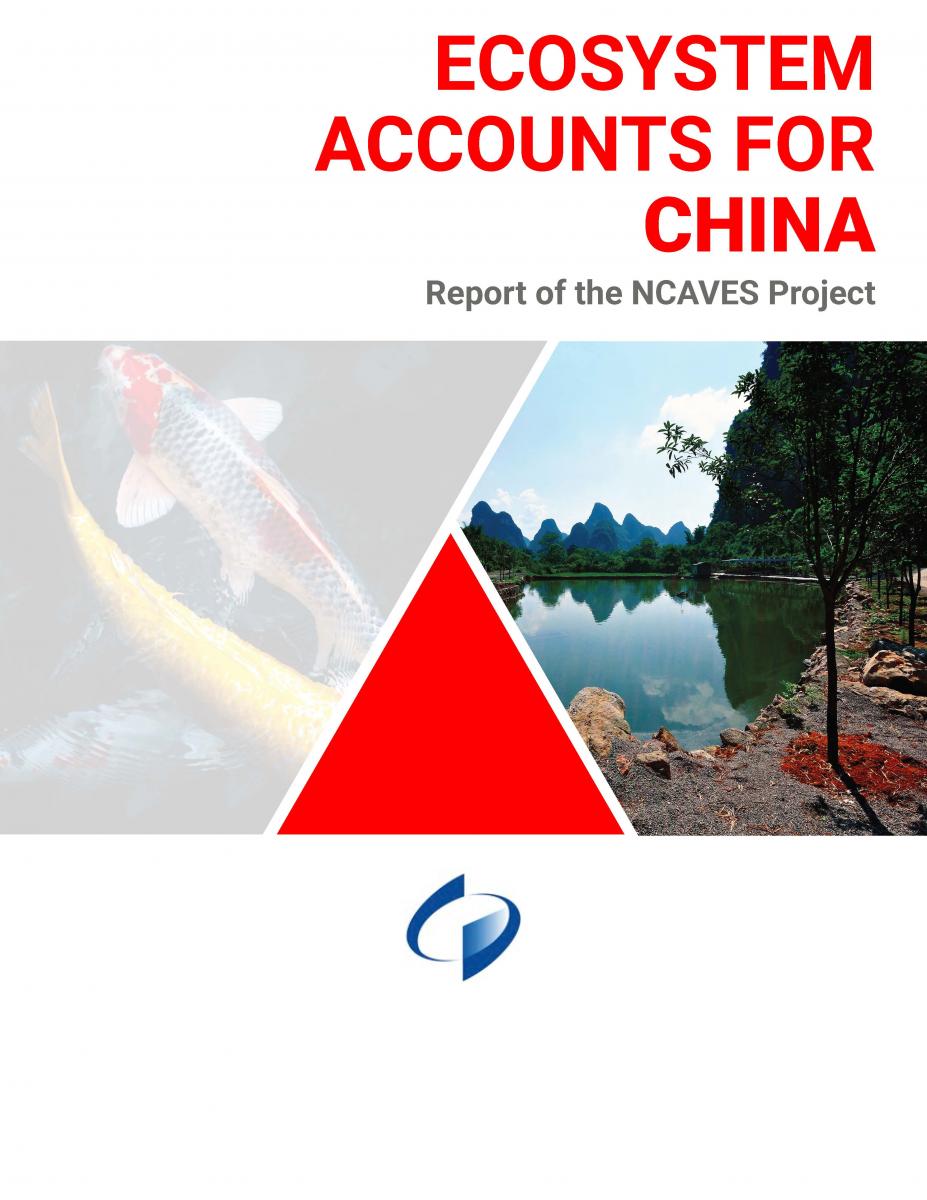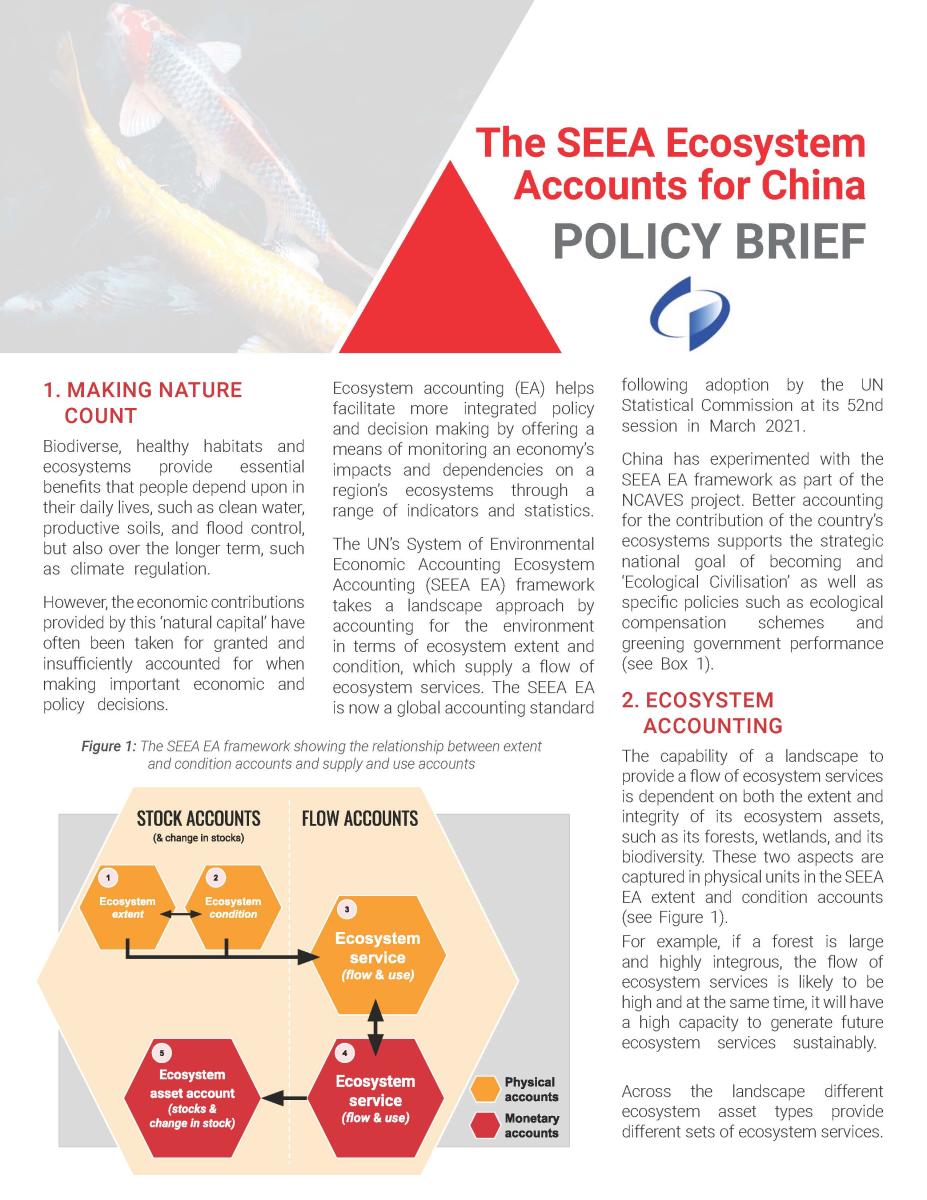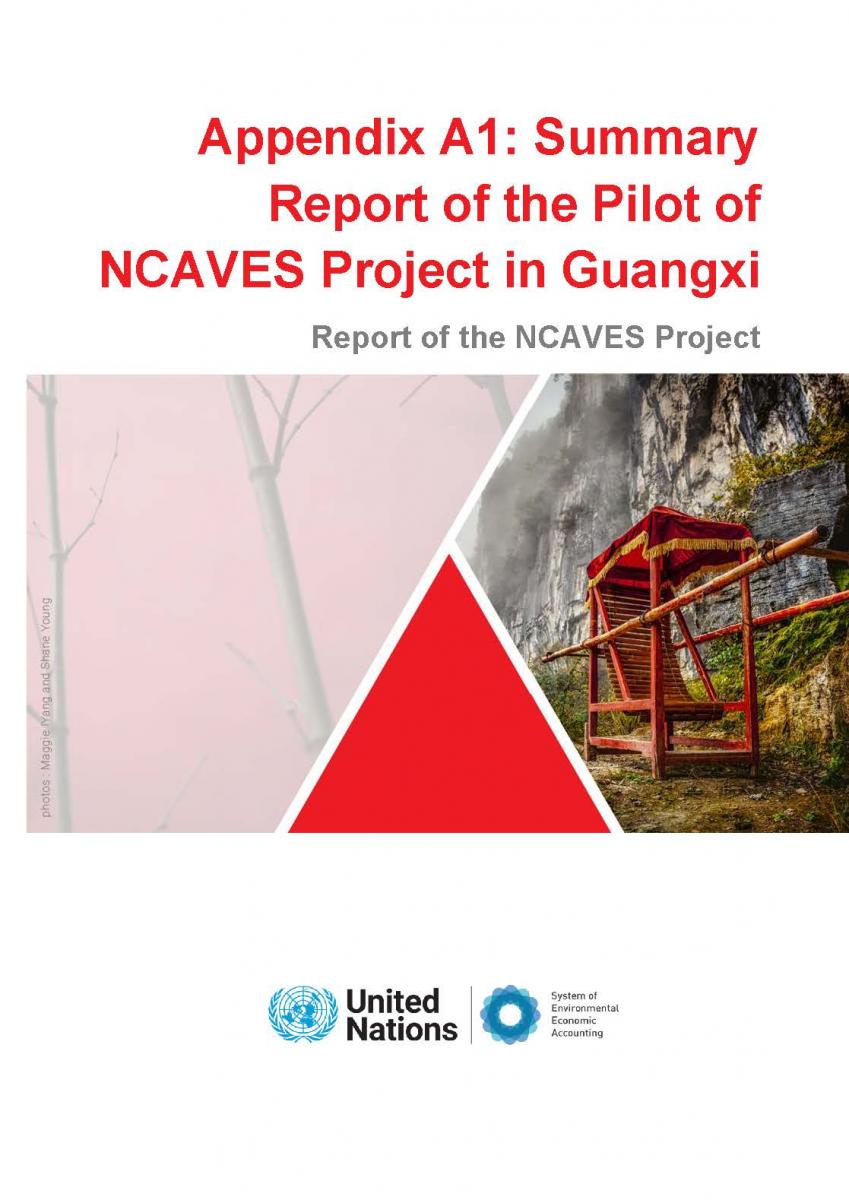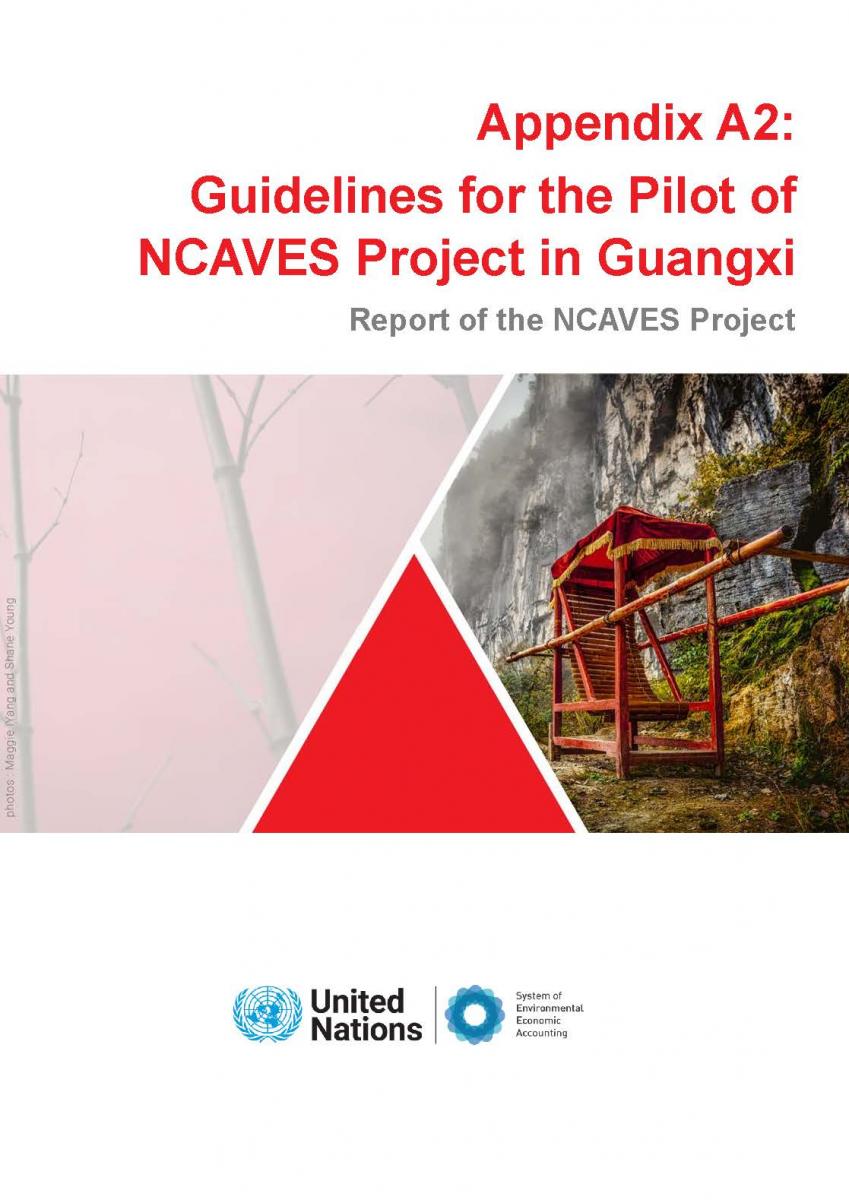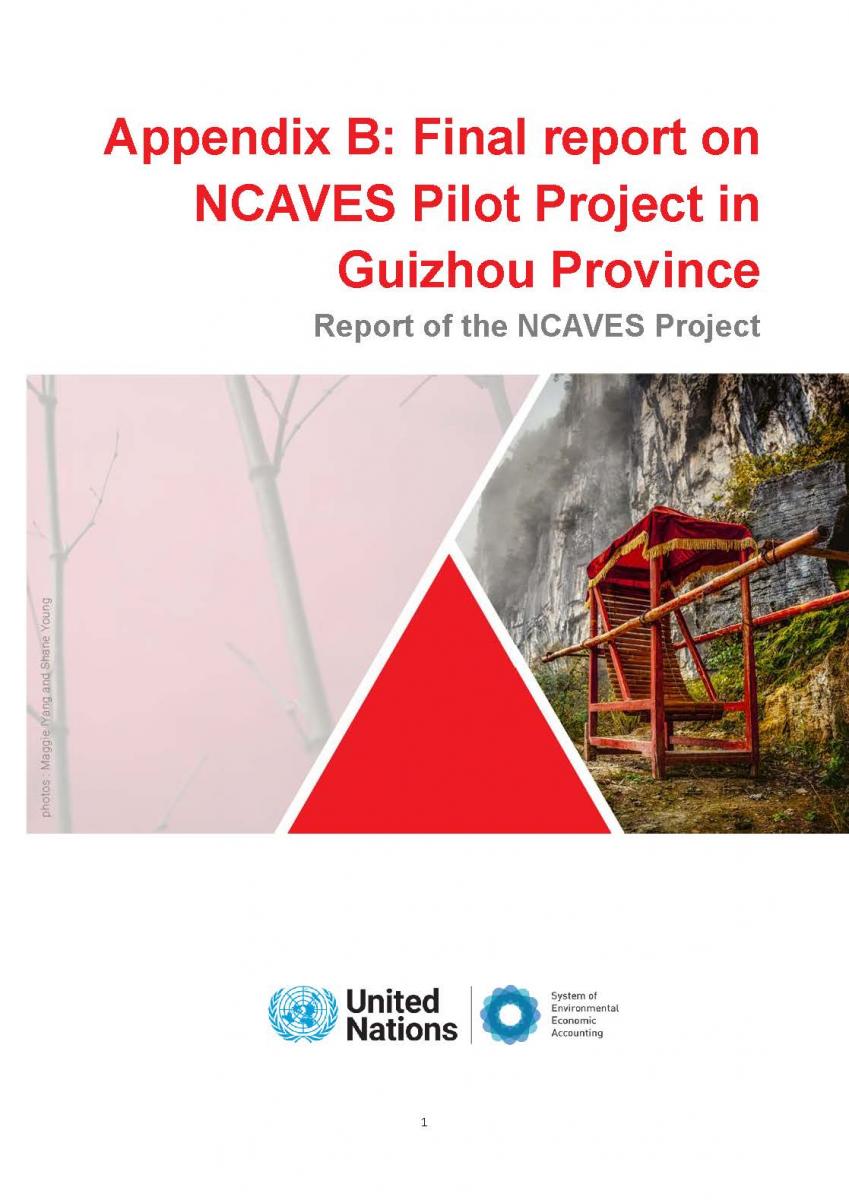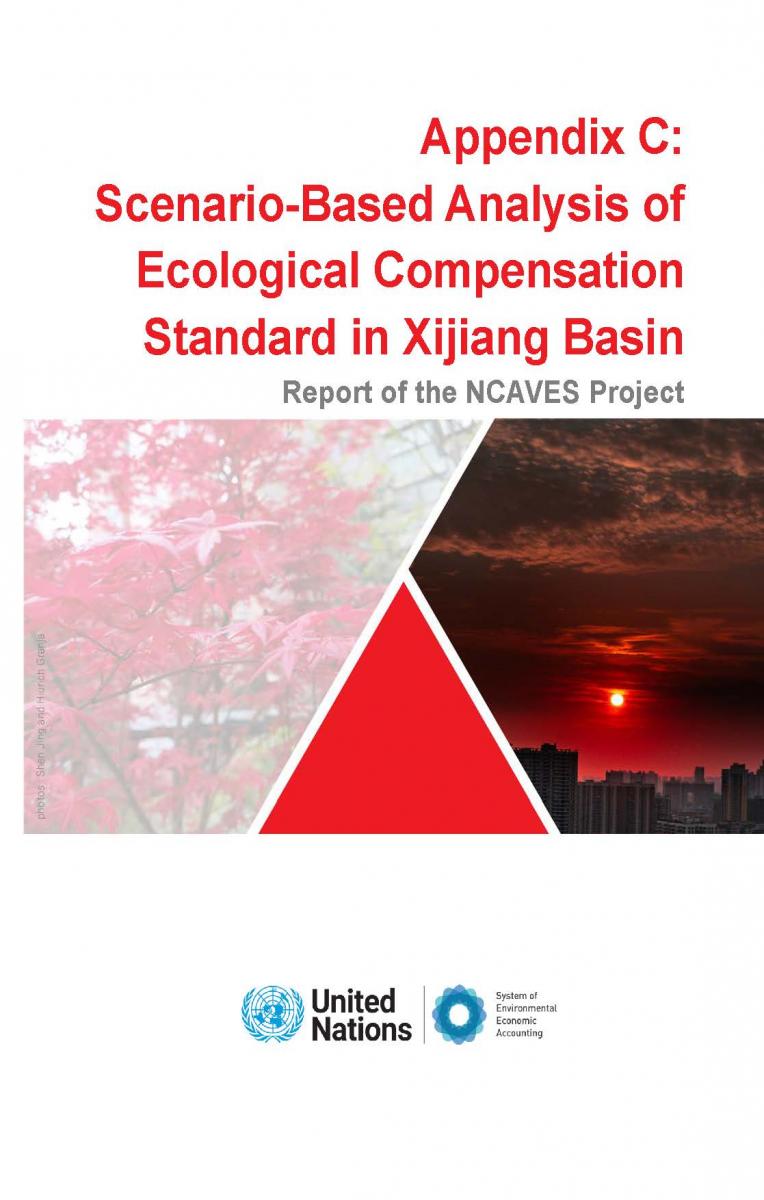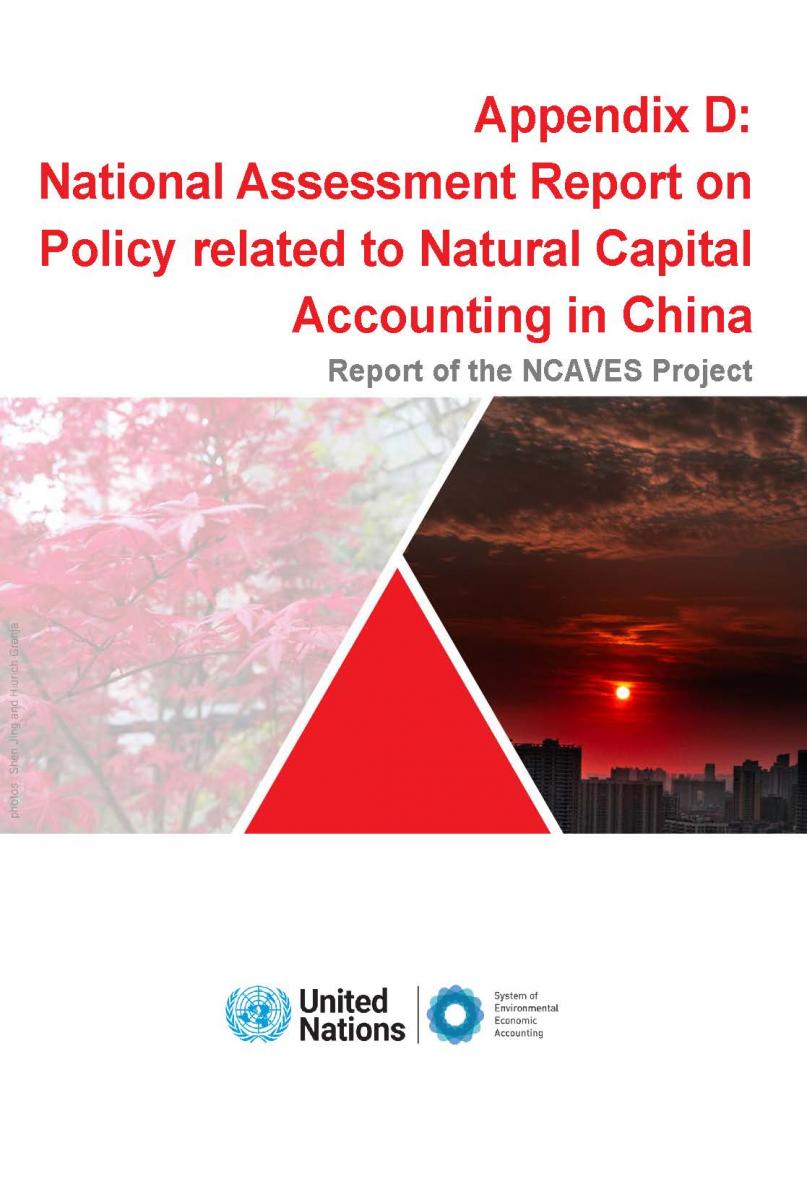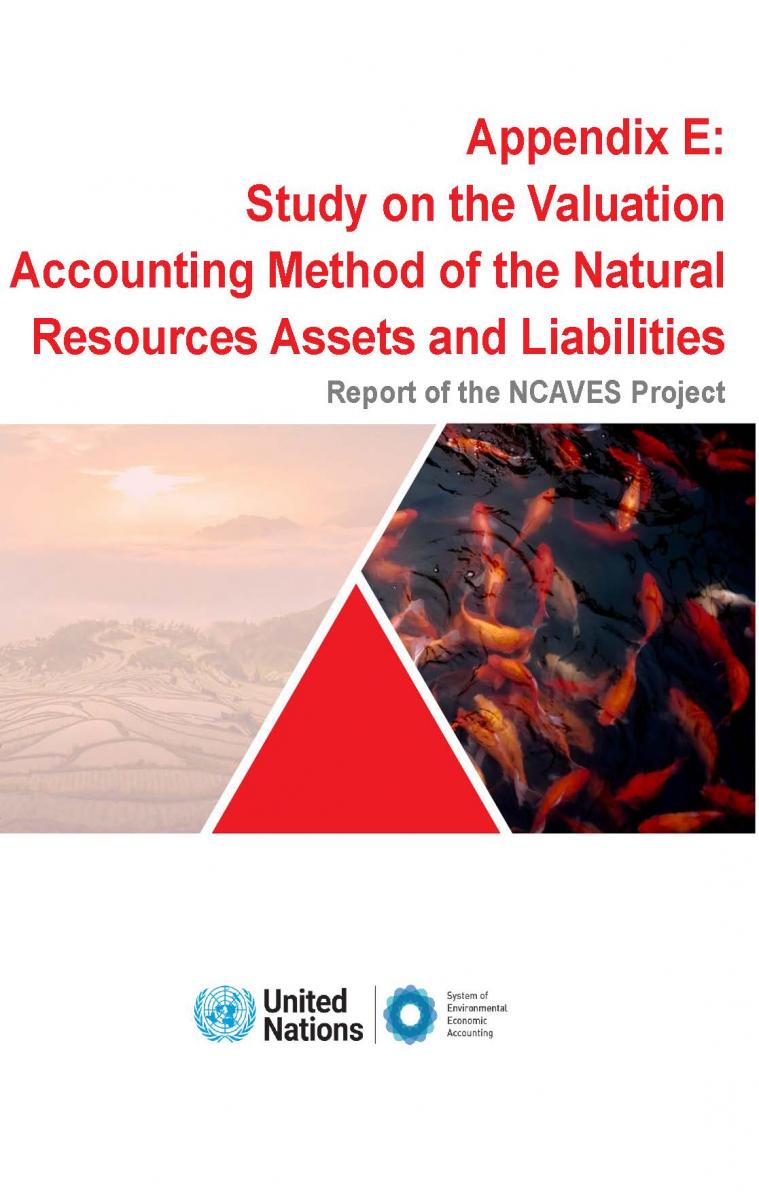Natural Capital Accounting and Valuation of Ecosystem Services - China
China
Project overview
The National Bureau of Statistics (NBS) of China is the lead institution implementing the European Union-funded project Natural Capital Accounting and Valuation of Ecosystem Services (NCAVES) in China, in collaboration the Statistical Bureau of Guangxi Zhuang Autonomous Region, Guizhou Bureau of Statistics, the Research Center for Eco-Environmental Sciences of the Chinese Academy of Science (RCEES-CAS).
Project activities and results
The final NCAVES China report provides an overview of the work undertaken in China to compile ecosystem accounts under the SEEA Ecosystem Accounting framework. The report presents a synthesis of China’s work in the NCAVES project, covering ecosystem account pilots in Guangxi and Guizhou, policy scenario analysis on the ecological compensation scheme in the Xijiang River basin, research on the valuation of natural resources balance sheet, alignment of SEEA and Gross Ecosystem Product and national assessment on natural capital accounting policy in China.
Pilot ecosystem accounts in Guangxi
Guangxi is one of the two provinces in China that was selected for pilot ecosystem accounting using the SEEA EA framework. Using 2016-2017 data sets a comprehensive set of environmental and ecosystem accounts are compiled for 6 ecosystem types which cover asset accounts for land, forest and water resources as well as ecosystem extent, condition and services accounts. The complete results of the pilot are documented here.
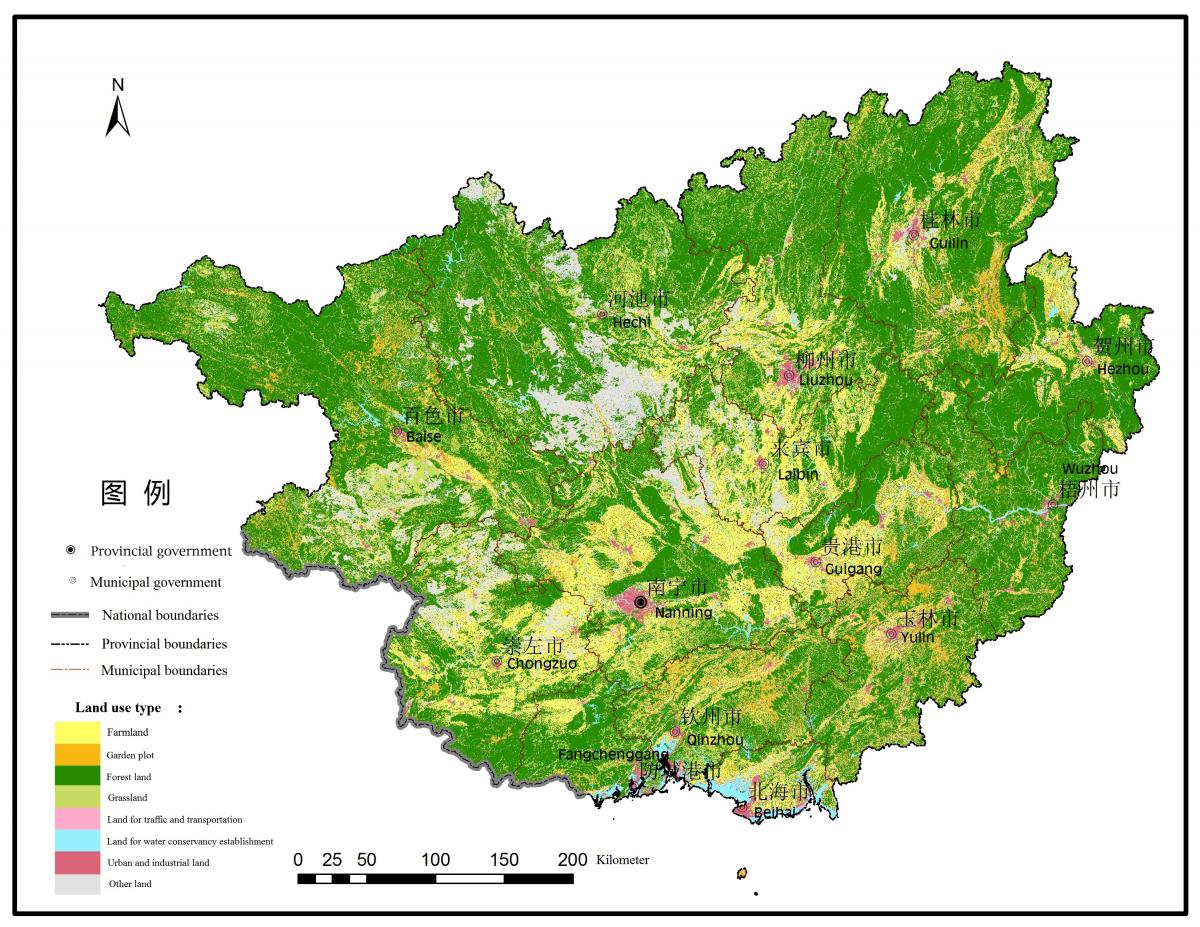
Land Use Map for Gungxi in 2017
Pilot ecosystem accounts in Guizhou
Guizhou is the second pilot province in China selected for pilot ecosystem accounting using the SEEA EA framework. A set ecosystem accounts, covering ecosystem extent, condition and services accounts at the provincial level using 2018 data, are compiled. The complete results of the pilot are documented here
Scenario-based analysis of Ecological Compensation Standard in Xijiang Basin
A policy scenario analysis was undertaken in 2020 on the ecological compensation scheme in the Xijiang River basin, which draws on the compiled ecosystem accounts data for the provision and value of ecosystem services that have been developed as part of the NCAVES project. The complete results of the study are documented in the report “Scenario-Based Analysis of Ecological Compensation Standard in Xijiang Basin”
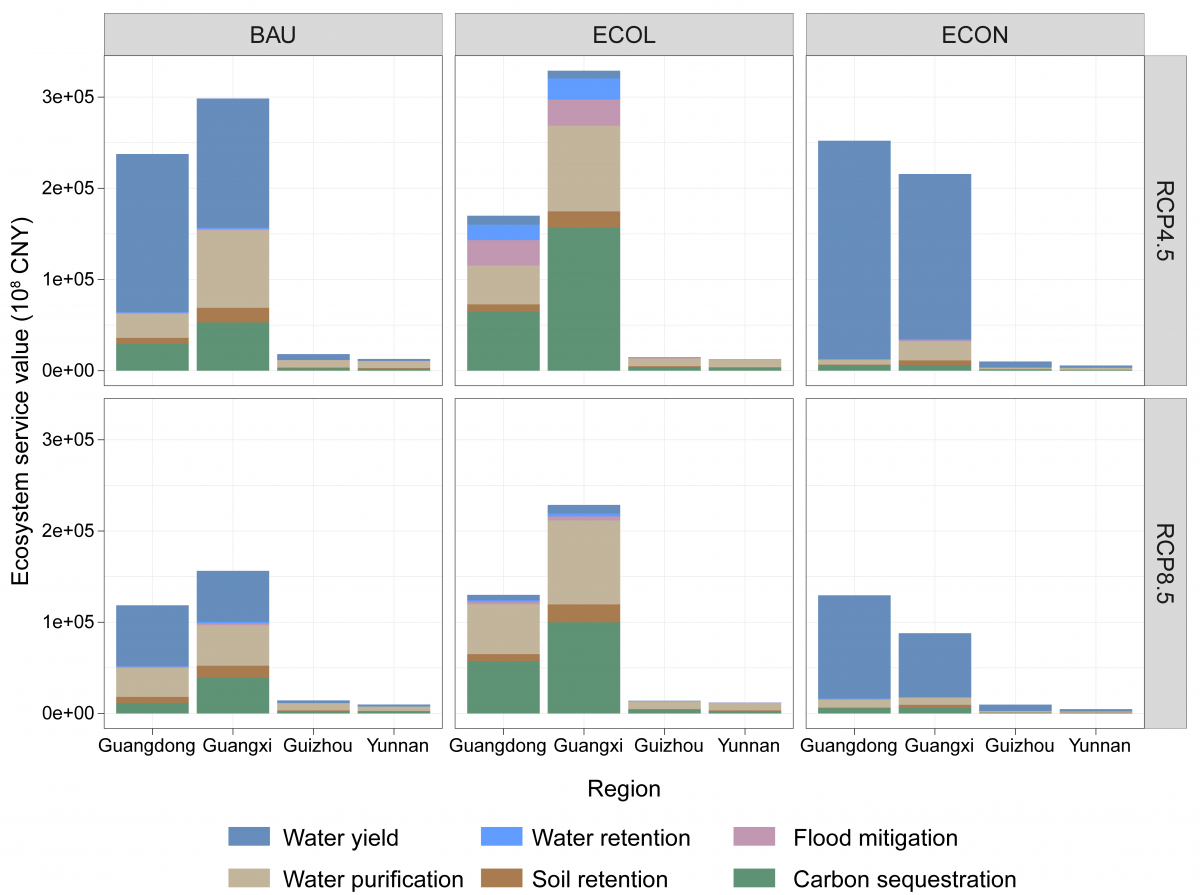
National assessment on NCA policy
To address the severe environmental crisis, policymakers in China are constructing a new governance strategy with major reforms across all social sectors to better balance socioeconomic development with ecological protection. A national assessment report was produced to assess how natural capital accounting (NCA) can play an important role in the realization of these over-arching objectives and the specific policy measures implemented in China. See here for the report
Indicator testing
China has contributed to NCAVES indicator workstream through testing of indicators that are derived through the accounts.
- China Indicators Testing Reports
- Assessing the linkages between national indicators initiatives and SEEA – China Indicator Alignments
Research on the valuation method of the Natural Resource Balance Sheet
The proposal to compile natural resources balance sheets was put forward during the Third Plenary Session of the 18th Central Committee of the Communist Party of China as a major resolution towards the construction of Ecological Civilization. NBS China commissioned the Institute of Geographic Sciences and Natural Resources Research of the Chinese Academy of Science to conduct a research study on the valuation of natural resource assets and liabilities for the natural resources balance sheet. The complete results of the study are documented in “Study on the Value Accounting Method of the Natural Resources Assets and Liabilities (2020)”.
The SEEA in China
The Chinese government’s commitment to sustainable economic growth is reflected in president Xi Jingping’s elevation of the principle of “harmony between humankind and nature” to central place in the nation’s Global Vision. Most recently, the 13th five-year plan, adopted in 2015, contains an array of measures and targets aligned with the concept of ecological civilization.
As part of this commitment, China has incorporated the concept and analysis of natural capital into its policymaking. For example, it recently launched a national effort to establish “natural resource balance sheets,” physical and monetary indicators of stocks and changes in natural resource levels. Following a pilot effort in eight provinces, balance sheets for water, land, timber, and mineral resources at a national level were initiated. In 2014, the nation also completed its first National Ecosystem Assessment, spanning 2000-2010, an effort that involved more than 3,000 scientists.


